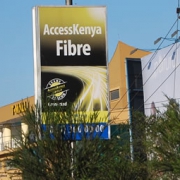Providing Connectivity During Humanitarian Crises: An Approach from Luxembourg
Following actual natural disasters, humanitarian crises often escalate in gravity due to a lack of communication and connectivity between stakeholders that are on the ground. In an effort to eliminate these problems, the government of Luxembourg, in collaboration with the ICT Humanitarian Emergency Platform at the UN World Food Program (WFP), recently designed and created EPIC: Emergency Preparation Integration Centre.
The purpose of EPIC is to provide voice and data communications, via rugged mobile phones and digital radios with Internet-based phone service and GPS capabilities, to disaster zones within 14-20 hours of occurrence. The communication platform allows international agencies to communicate with each other, consolidating efforts and increasing response efficiency. Additionally, EPIC allows on-the-ground response teams to maintain communications with their agencies’ home bases, allowing for the transfer of swift and accurate news feeds in order to stimulate donor response as well.
The EPIC system is all contained in a single toolkit, stored at the UN’s five response posts, located around the globe in strategic locations. When a disaster hits, the toolkits are quickly flown to the scene, reestablishing communications as quickly as possible to help coordinate an organized response effort. The entire toolkit has yet to be used, but will be pilot tested in a mock trial in Cape Verde this July, according to WFP ICT regional director of Latin America Alf Ellefsen. If the trial run goes smoothly, the toolkits will be fully operational by September or October of this year.
I had the opportunity to interview Mr. Ellefsen at the WFP about the program following his presentation at the Aid & International Development Forum 2011 last week. He explained that this effort “fulfills our mandate from the UN as the lead of the Emergency Telecommunications Sector to provide telecommunications services during humanitarian crises.” As seen in Haiti and Pakistan, recently, the lack of collaboration between responders created new problems and slowed some efforts. The EPIC system would allow responders, such as the WFP, to collectively work with other public, private, and non-governmental organizations to efficiently distribute food to victims, locate resources, and communicate crucial messages.
Though initially a project by the government of Luxembourg, EPIC now includes deployment and funding partners at the UN WFP and Ericsson. The potential of EPIC is large; if functional, it could drastically reduce the systemic problems that result in the months following natural disasters, and save thousands of dollars in relief efforts that end up being duplicated.







































